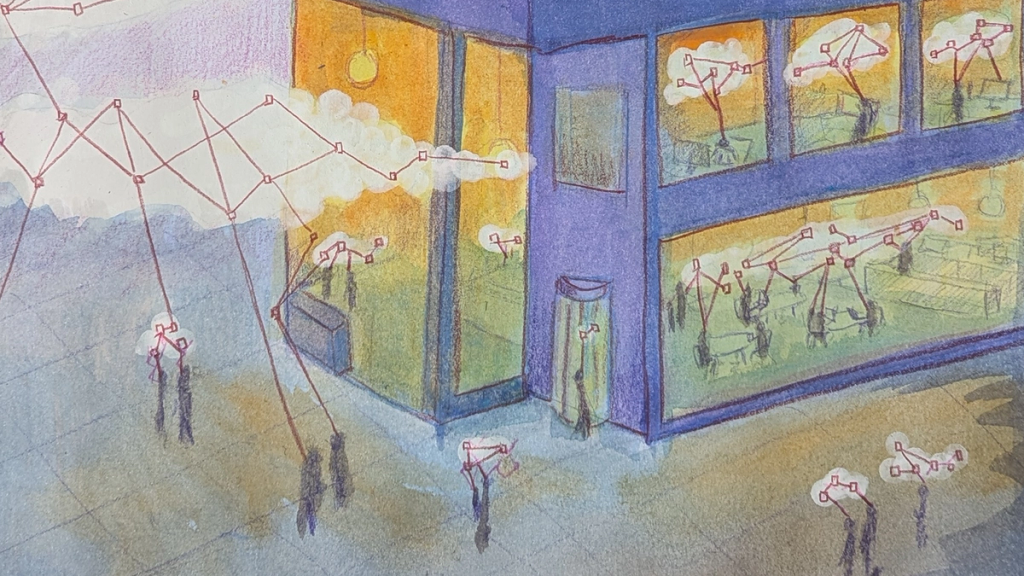
Building Capacity for the Age of AI
The narrative of AI in India is often built on infrastructure and innovation: compute power, datasets, and models. But another kind of infrastructure matters just as much: the human and institutional capacity to build, question, and sustain this technological evolution responsibly.
As AI tools become embedded in governance, climate response, and development programs, capacity building has emerged as one of the most critical and least visible challenges. Who gets to build, who knows how to use, and who can critically evaluate these systems to even decide whether a problem can be solved by them? These aren’t merely technical questions but social ones that shape whether AI deepens existing inequities or helps close them.
At Digital Futures Lab, our capacity-building efforts reflect this evolving landscape. From the Responsible AI Fellowship that served as a programmatic hub for peer learning to our current role as Knowledge Partners on RAI with Project Tech4Dev’s AI Cohort Program, we have been working with organisations as they design, test, and evaluate their interventions in real time.
1. From frameworks to practice
Capacity building goes beyond training programmes or toolkits. It is about creating enabling ecosystems, from regulatory understanding to technical mentorship, that allow stakeholders and decision makers across the ecosystem to move from awareness to implementation. This means recognising multiple layers of capacity: Individual capacity to understand and interrogate AI systems; Organisational capacity to design, deploy, and sustain ethical interventions; and Ecosystem capacity involving funders, governments, and research networks that shape how responsible innovation takes root. Further, capacity building is crucially, more than just learning to use tools. It is also about knowing their limits and building the discernment to decide when not to use them.
2. The missing middle: Sustained and interdisciplinary support
Short-term accelerator programs or fellowship cycles can ignite awareness but often fall short of supporting deep structural change. Many social-impact organisations are pressed for time, balancing resource constraints with urgent programmatic goals. What’s needed instead is long-term, cross-sector collaboration, where research organisations, technical partners, and funders work together from the design phase onwards. Technical partners help translate responsible AI frameworks into buildable realities, while funders enable consistency beyond pilot phases. Sustained investment in responsible innovation is crucial to ensure pilots evolve into scalable, safe, and effective interventions.
3. Building capacity across the AI supply chain
Capacity building also means building discernment across the AI supply chain — from data policy to user literacy. Many organisations working with sensitive community data might not be pre-equipped with internal policies around consent, data deletion, or model transparency. Addressing these requires more than technical training; it demands rethinking institutional norms and setup.
At the same time, end-user capacity or AI literacy remains underexplored. India has made strides in digital literacy, but AI literacy demands a different kind of engagement: one that tests how users understand, trust, and engage with AI systems. Without this, even well-designed interventions risk disempowering users rather than enabling them.
4. Towards a culture of responsibility
Capacity building, at its core, is about cultivating a culture of responsibility, not compliance. It asks institutions to build the capacity to pause, question, and adapt. If foresight helps us imagine the futures we want, capacity building ensures we have the skills, ethics, and collaborations to get there. In an age where AI is both infrastructure and ideology, building capacity may be our most important act of innovation.
For deeper insights, take a look at our flagship projects on capacity building:
- Responsible AI Fellowship: India’s first capacity-strengthening programme targeted at social impact organisations that helps grow knowledge frameworks, tools, and capacities for Responsible AI, through 1:1 mentoring, peer exchange, and expert lectures. Access and entire library of video lectures, resources, and more.
- The Practice Playbook on Responsible AI: A guide to designing AI for social impact in India, co-created with 14 social impact organisations and expert mentors from the inaugural cohort of our Responsible AI Fellowship. The Playbook blends real-world insights with proven frameworks.
- AI and Healthcare in India: We’re developing a risk assessment and mitigation framework to ensure the safe, ethical, and responsible adoption of AI in Indian healthcare systems as the country turns to AI-enabled tools to transform overburdened healthcare systems.
- AI Ethics in the Global South: Capacity-strengthening and Learning: Through this project, we supported grantees of Gates Foundation’s Global Grand Challenges to advance responsible GenAI in LMICs. We helped shape ethical, gender-equitable AI solutions for social impact through expert guidance, peer learning & research.
To receive these monthly reflections and insights directly into your inboxes, subscribe to our newsletter.
Subscribe Now